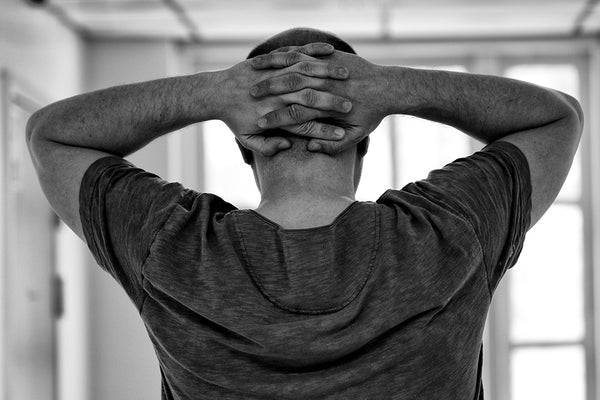Your Cart is Empty


Your body only knows how to handle being in pain for so long. Dealing with it might not take much out of you at first, but with time, it’ll wear you down like a river washing through a canyon to make a ravine.
Chronic pain has been connected to worries, depression, and brain fog. That’s because the structure of your brain changes the longer you are in pain.

One of your brain’s major jobs is to process pain. It connects to the rest of your nervous system and processes signals sent in from all over the body.
Your body has neurons that work as pain receptors and tells your brain when something feels bad. Some of these neurons work quickly, while others work slowly.
Those who suffer from chronic pain like back pain or fibromyalgia have pain receptors that are firing all of the time.

Your brain wasn’t meant to constantly receive pain signals. When it’s bombarded by chronic pain, these signals will literally change the structure of the brain.

Patients who deal with chronic pain also have a decrease in the amount of grey matter in their brain over time. This means that pain literally makes your brain smaller.
Less brain mass makes it difficult to think, process, and function on a normal level. Functioning at a lower level can seriously hold patients back from reaching typical life milestones and living a fulfilling lifestyle.
Decreasing grey matter is also associated with changes in the nervous system. The most heavily affected areas are those responsible for transmitting pain signals. This can lead to the brain misfiring and believing the body is in pain even when there isn’t anything causing it.

When your nervous system doesn’t work the way it’s suppose to, you could be in pain even when the original source disappears.
Nerve damage is the most common source of feeling pain when there isn’t a cause. If your pain comes on suddenly, or appears to come out of nowhere, it may not be connected to a physical cause.

Being in constant pain requires your neurons to fire all the time. These high levels of activity break down and even deplete the neurons that carry pain signals from your body to your mind.
These changes in your brain have a huge impact on your mood. Your brain has a shortage of neurons, which disturbs your brain balance. This makes it difficult for you to feel well and can even lead to depression.

Being in pain all of the time has serious repercussions for your memory and concentration. One study found that pain messes with the part of the brain that retains memories and processes information.
Pain also messes with your sleep, which is a vital part of being able to remember and concentrate.
Finding ways to manage your chronic pain can help you reverse the damage chronic pain does to your brain. You don’t have to spend thousands of dollars getting treatment that only helps part of the time. Natural treatments such as exercising, good nutrition, and bio-energetic relief cream can help you manage and heal your chronic pain without some of the dangerous side effects that come from more typical pain medications and treatments.
CLICK HEREHelping to liberate your pain, rejuvenate your energy field, and align your mind and body so that you can put your best self forward.
Comments will be approved before showing up.


CBD is short for cannabidiol. It’s a non-psychoactive cannabinoid found in the marijuana plant. Cannabinoids naturally occur in the body and are known as endocannabinoids. They act as a bridge between the body and mind.
CBD oil is made by taking potent hemp plants and using an extraction solvent and applying it to ground hemp plants. When the solvent is removed, the CBD oil remains.
CBD oil does a lot for your brain. For the most part, it changes how different receptors in your brain function. The biggest one related to worries is serotonin, which plays a big role in your mental health.

Despite what you may think, meditation does not have to be difficult. In fact, you can teach yourself how to meditate in 10 minutes or less with the help of some online resources.
One study found that after an 8 week meditation program, 95% of those with worries and pain had a moderate reduction in their symptoms.